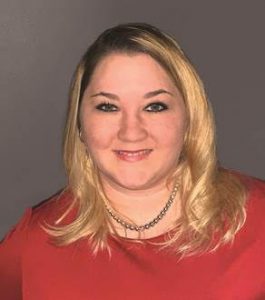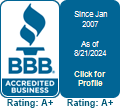06 Sep 2019
Niki Bolton announced as a Women in Trucking’s 2019 Most Influential Woman in Trucking Award Finalist

Niki Boltonis the Senior Truck Auditor and Executive Projects Officer for American Truck & Rail Audits, Inc. (AMTR). She has been with the company for 11 years. She began as a data entry clerk, quickly moved to truck audits team manager, received her Certified Transportation Cost Auditor certificate from AMTR, and then transitioned into her current role in early 2019. Prior to working at AMTR, Bolton attended the University of Arkansas at Little Rock. She has also completed Transportation Logistics & The Law and Motor Carrier Operations courses through the Institute of Logistical Management. In her very niche business she has brought up many new auditors and a new female manager to lead the truck audits team. She is involved in many industry organizations including National Industrial Transportation League, Blockchain in Transport Alliance and Transportation Intermediaries Association. Outside of the office she volunteers as a leader for a non-profit organization for foster and adoption care.
Read more about the award and finalists on Women in Trucking

Monica Poyner is a Senior Rail Auditor and Rail Audit Team Manager. She has been with American Truck & Rail Audits for 22 years. She possesses an incredible knowledge of the railroads and how they operate. Similarly, she understands the complexities of rail freight billing as well as anyone in the industry. Although AMTR has evolved significantly in the past two decades, Monica has been a constant. Her enthusiasm for what she does is infectious, and her advocacy for the shippers and the railroads is unrelenting. AMTR would not be the company it is today without her. Despite all the effort she contributes on the job, she also manages to be actively involved in her church as a teacher and mentor to young girls. AMTR would like to recognize Monica’s faithful service to our company and the transportation industry, as well as, congratulate her on reaching such an incredible anniversary milestone!
– Summer Bartczak, AMTR CEO
In recent months, we have seen a great deal of turnover in personnel at both our client and carrier ends. Whether due to retirements, promotions, changes of careers, etc., we find ourselves in a position of re-educating newcomers on the basics of freight overcharge recovery. School may be out for the summer, but it is an exciting opportunity to revisit some of the fundamentals with regard to the legal basis for what we do.
The recovery of overcharges for truck freight is governed by Title 49, CFR, Part 378, Procedures Governing the Processing, Investigation, and Disposition of Overcharge, Duplicate Payment, or Overcollection Claims. As the title implies, this provision covers the processing of claims for the transportation of property in interstate or foreign commerce by motor carriers and household goods freight forwarders subject to 49 U.S. Code Subtitle IV, Part B. When shippers partner with carriers that participate in the National Motor Freight Classification (NMFC), they can find provisions regarding overcharge claims processes in Items 300300-300380.
For rail freight commodities such as wheat, soybeans and various food products still regulated by the government, the recovery of overcharges for rail freight moving under public rates is governed by
US Code, Title 49, 11705, Limitations on Actions By and Against Rail Carriers. For exempt commodities or products moving under contracted pricing, overcharges and associated time limits are outlined in the carrier’s rules tariffs or noted in the confidential documents entered into by shippers and the various railroads.
With such laws and contracts as an underpinning, AMTR serves our shipper clients as a duly authorized agent to process requests with carriers for overcharges, regardless of nature. Even though we do advocate for shippers, we take seriously our mission to partner with carriers—rail or truck—to ensure shippers get the customer experience they deserve.
During the National Motor Freight Traffic Association’s (NMFTA) public meeting in June 2019, the Commodity Classification Standards Board (CCSB) eliminated NMFC Item (Rule) 171—known as the “Bumping” Clause—and all notes for classifications referencing the Item. Item 171 permitted shippers to increase an LTL shipment’s density (by artificially increasing weight), thereby lowering a shipment’s class for rating purposes. Although “bumping” was not applicable in situations where the added artificial weight would not have resulted in cost savings, it was a rule that shippers could have implemented for cost savings in various ways. Imagine the impact of adding a few extra pounds on the bill of lading, thereby increasing the density, and resulting in a lower rating class. Moreover, if the lower class obtained from bumping fell within a pricing freight all kinds (FAK) scale, it would result in an even lower class and even greater cost savings.
The bottom line is, it is critical for shippers to understand the NMFC rules and their impacts on transportation budgets. Partner with AMTR and let us put that same knowledge to work for your company by discovering overcharges, recovering freight dollars and educating
your team on similar cost saving rules.
The Union Pacific has recently issued a new UP 1000 General Terms and Conditions Tariff effective March 1, 2019. The important change in this tariff involves a significantly shorter timeline for filing overcharge claims for regulated commodities–one year now rather than the three years previously allowed. The new tariff specifically states that this publication shall apply to all transportation services provided by UP under any rate document that references the new tariff. The significance for shippers of certain commodities involves the drastic decrease in time allowed to discover any errors (whether they are shipper or railroad errors) and recover overcharges. It is important to note, however, that shippers of commodities that remain under the protection of federal regulation will still have three years to recover overpayments. Significant changes such as this can easily be missed by busy shippers, but not by AMTR. Keeping abreast of industry news is our business—be Smart and let us do the hard thinking for you!
The Surface Transportation Board (STB) recently met with several shipper associations, including the American Forest and Paper Association (AF&PA) and the Institute of Scrap Recycling Industries, to discuss lifting the outdated exempt status of several commodities, such as crushed or broken stone, hydraulic cement, iron or steel scrap, and forest/paper products. These shipper associations contest that conditions have changed significantly in the years since railroad industry deregulation in the 1980s. In a recent FreightWaves article, Julie Landry of the AF&PA noted that the many Class I railroads of that era have, today, consolidated into six financially solid entities, leaving a majority of forest and paper product shippers captive. Without the oversight of the STB, shippers of exempt commodities say they have been left with no recourse when faced with lack of service and unreasonable rates. With three voting members now in place on the STB, Ex Parte 704–Review of Commodity, Boxcar and TOFC/COFC Exemptions is at last set to gain steam. If these issues are important to your company, now is the time to get involved with your industry associations and put the strength of numbers to work!
With the deregulated trucking industry, it is important for shippers to stay informed and use their voices regarding proposed changes for the NMFC Rules and Classifications. The NMFTA hosts three public meetings per year where the CCSB considers proposals to amend the NMFC. Shippers should be aware that these proposals are listed in a Docket Bulletin, which is issued 30 days prior to a public meeting and posted on the NMFTA website. This announcement allows shippers and other interested parties to address the CCSB with information or concerns prior to or during a public meeting. Any decisions made at the meetings are documented on the NMFTA’s website and implemented in an NMFC Supplement. Shippers are highly encouraged to stay up-to-date on proposals and decisions that could affect their shipping classifications and rules via the NMFTA website: www.nmfta.org/pages/publicdocketfiles.
As the transportation/supply chain industries are being transformed by advancing digital technologies and innovations, an important conversation still remains about the value of maintaining humans-in-the-loop in activities or processes where judgement and insight are critical. Not surprisingly, we see exponential increases in automation and artificial intelligence in our business of freight cost auditing. It is important to be reminded, however, audits performed with such technologies can only uncover what the software and algorithms tell them. Given the complexities involved with freight costs and billing, having a human-in-the-loop enabled by technology is still essential for a robust, in-depth audit. AMTR performs second and third audits behind automated systems all the time and never fails to find errors. At AMTR, having SMART, human auditors-in-the-loop sets us apart from the competition. Instead of using technology alone to “jet ski” your freight audits, the knowledgeable experts at AMTR do a “deep dive” to save you even more money.
Spring has officially sprung and temperatures are on the rise. This means it is time to be on the lookout for unnecessary freeze protect fees. Many carriers include guidelines stating the service is offered from October to April, so now is the time to confirm that these charges are not being billed erroneously. There are a few ways shippers can ensure they are being properly charged for such fees. First, shippers should be familiar with the carrier’s common practice rules tariff. There may be several stipulations for when these fees do and do not apply—such as specific date parameters, freezing points and service types. Secondly, they should be alert to any exceptions listed in a customer’s specific tariff or contract pricing with regard to fee waivers or modified stipulations. Interestingly, AMTR experts have begun to see “season passes” for freeze protect service. The season pass approach is a flat fee to cover all charges for this service during a season. There is an important caution, however, related to this type of approach when using freight bill automation. AMTR often sees shipments billed but tied to the wrong account. In this case, the fee may still be inadvertently charged. AMTR SMART audit experts will make sure only the correct fees are paid every time.
One of AMTR’s core values is to “seek knowledge always.” Even so, given the many recent changes in the railroad industry, we have stepped up our learning initiatives further to ensure the best audits for our clients. We have consciously worked to mix the long-term experience of our senior rail auditors with the fresh ideas and perspectives of our newer auditors and interns. We have also pursued advanced learning through webinars, live classes, online courses, conferences and more. These learning activities are undoubtedly expanding our knowledge and enabling more creative thinking, which we are channeling into finding more complex billing errors than ever before. Specifically, as we learn more about the technology tools and systems used by our clients and carriers, and as we continue to design and implement our own IT tools for auditing, we are discovering more and more how an overreliance on algorithms and “AI” alone is costing rail shippers thousands of dollars through overcharges and erroneous billings. With all of these learning initiatives, AMTR is better positioned than ever to recover the lost freight costs caused by tech challenges. The benefits of technology are undeniable, but it is the application of human knowledge that makes our audits SMART.


